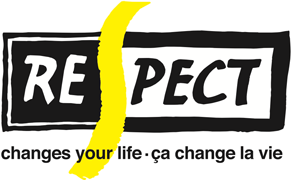Launched in a previous issue of the Bulletin, the 'Respect@CERN' campaign has triggered some rich and varied reactions, and contributions received from colleagues have covered a wide range of themes that extend from the basic “golden rule of treating others as you would have them treat you” to some very specific observations of respectful behaviour in the CERN context.
“To me, respect is the core of all relationships, all exchanges: we cannot work together and achieve results without it,” says one colleague, while another underlines the equally important dimension of projecting and preserving one’s own self-respect where “whether or not we sleep well at night depends on whether or not we feel that we have been true to ourselves that day”.
Respect in the workplace is different from everyday respect in that it is based on an “earned privilege where each colleague has been selected for a certain set of skills and experience, and we should be mindful of this fact when questioning or challenging them”. It is about “taking into account others and the impact we have on them” and about “valuing and appreciating the work of all colleagues independent of their position, education and profession”; it is also about listening to people and not rejecting their opinions “because they are too young or inexperienced, because of their sex or nationality or simply based on rumours about their past or their supposed intentions”. It is about creating a workplace climate where colleagues are “courteous, attentive, empathic, helpful and understanding,” where we “give our colleagues the chance to exceed expectations,” remember to “give credit to the people who have helped us along the way,” and always “treat everyone – physicists, engineers, technicians, administrative staff - as equals”. It is about ensuring equal opportunities for long-term employment for all professional categories in the Organization. Showing respect “starts with the little things in life, like, for example, greeting colleagues in the corridor, not speaking too loudly in the corridors, keeping to designated smoking areas and remembering to wash up our own coffee cups”.
“Respect is about considering divergence,” it is an “acknowledgement and acceptance of the freedoms of people and society”. “In the workplace especially, it is about freedom of expression, the ability to express ourselves without fear of reprisal… but also acceptance of the limitations and constraints inherent in those freedoms”; it is about "seeing the world from the point of view of others”; it is about accepting “non-conformism and the right to reject a single way of thinking”; it is about respecting individual differences and not “allowing personal attacks during discussions and meetings”. Respect is the “glue that binds us all and nurtures creativity and success”.
Respect plays an essential part in leadership – indeed, “a true leader naturally commands respect,” says one contributor who adds that “mutual respect is de facto present in all good hierarchical relationships”. This idea is echoed further by a colleague who underlines that “managers have to understand this respect-power dynamic if they want to get the best performance out of their subordinates”.
Contributions have also included some very specific examples of respect in the CERN environment: “I find CERN a very respectful place in terms of noise, safety and the behaviour of people,” says one contributor, while another underlines the “open-minded attitude and willingness to consider alternatives in my team” and a third identifies the behaviour of the restaurant staff in particular, “who are very cheerful and helpful even late in the evening after a long day’s work”.
Another contributor defines respect by emphasising the courage shown by a group leader who did not wait to “share bad news with the personnel” in the context of the CCRB process, but chose instead to inform them in a direct and timely fashion that there would be no IC posts, “without allowing for a build-up of suspense or false hopes based on corridor rumours”.
Of course, sharing examples about respect in the workplace inevitably also brings counter-examples, and some contributors have shared specific experiences of disrespect in the CERN environment, including, in particular, “being forced to breathe other people’s second-hand smoke” and “drivers who show an ingrained lack of respect on the CERN site, using excessive speed and assuming priority over pedestrians and other road users”.
Lack of respect is felt by some to be further accentuated by the added complication of a multi-cultural, multi-dimensional environment, which “brings a potential for certain individual-level clashes that can be difficult to overcome.” Examples of these negative experiences range from a refusal to learn how to pronounce a name correctly, where it is felt that “respect is wilfully undermined if people are recommended to ‘change their name’ or fun is made of a name that has connotations in another language”; through to e-mail exchanges where the sender unnecessarily uses the CC or ‘reply all’ functions, which “wastes the recipients’ time and the Organization’s resources”; and finally any remarks that cause minorities to feel “singled out [and their] personal accomplishment reduced to a mere satisfaction of quota”.
A final word from a contributor uses the initial letters of the theme, reminding us to:
Realise - Everybody- Seeks - Politeness- Esteem - Consideration - Trust
The ‘Respect@CERN’ campaign continues and you will be kept informed of the development of events, posters and other related items accordingly. Meanwhile, do keep sending in your concrete examples and sharing your personal experiences of respectful behaviour in the workplace in words, photos and images to respect@cern.ch.

